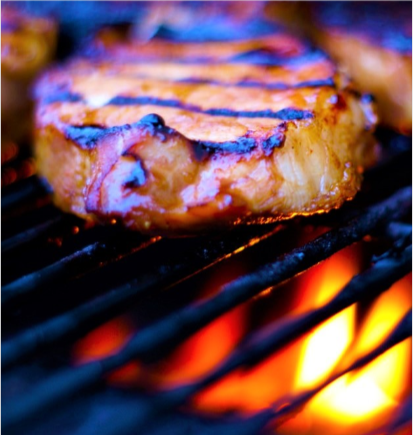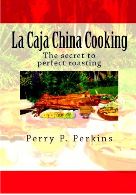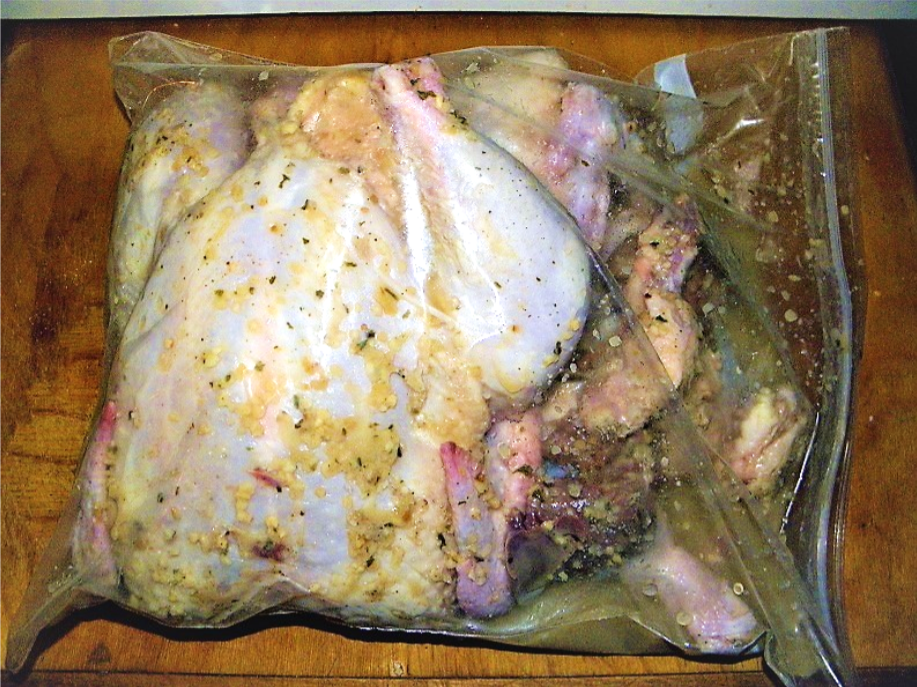- Home
- Latin Touch
- Brining
Latin Touch
Recent Posts
Latin Touch Meat Guides Pork: Part One
Posted by on

Latin Touch Meat Guides
Pork: Part One
~Chef Perry Perkins~

The early Spanish explorers of America brought the first pigs to the new world. They also brought the technique of "Barbacoa", which they'd learned from the tribes of Hispaniola.
In 1540 the Chicksaw tribe of (current) Mississippi, cooked a feast of pork over the barbacoa for explorer Hernando de Soto, and his men.
From there, the amazing combination of pork, flame, and smoke has spread to all corners of the country, being modified along the way with local customs and ingredients.
Here are some tips for getting perfect pork everytime with your La Caja China...
Before we start roasting, grilling, or smoking our favorite cuts, we need to know who much meat we need to serve our guests (and, of course, have a fair bit left over to enjoy for ourselves!)
Here are some good rules of thumb:
Approximate Servings Per Pound (Raw weight)
Cut
Pork, Shoulder Bone-in
Pork, Back Ribs
Pork, Country Style Ribs
Pork, Spareribs
Pork, Whole Pig
lbs.
3
1.5
2
1.5
1.5
When planning a meal, it is always better to purchase too much meat than not enough.
Basic pork brine: (for 6 chops. 2 tenderloins, or 1 shoulder/butt)
- 6 cups hot water
- 1/4 cup cider vinegar
- 1/4 cup firmly packed brown sugar
- 2 Tbs. kosher salt
- 1 Tbs. freshly ground black pepper
Pork Chops

Pork chops are cut from the loin, bone-in or boneless, that runs from the ham to the shoulder. Long a popular cut, chops are quick to grill, tender and lean with a sweet, mild flavor.
Being flat on both side, they get great caramelization when grilled over direct heat.
Grilling chops is a lot like grilling beef steaks and tend to run around the same price per pound. You’ll find a lot of different varieties of chops in the meat case, but the most popular cuts are loin and rib chops.
Pork chops cook fast, so they make a great dinner when you’re running short on time. For grilling, buy chops that are at least 3/4 to 1 inch thick.
I usually go for bone-in chops because they cook very evenly and cooking meat on the bone adds tons of flavor.
Brining
Brining chops not only gives you a little wiggle room on doneness, and adds some flavor, the brine helps keep the meat moist, which can be an issue with a meat as lean as pork chops. Just make sure to remember to dry the chops on both sides with paper towels so they sear, and don’t steam, on the grill.
To make a simple brine (using the recipe above), in a large bowl, mix the water, vinegar, brown sugar, salt and black pepper. Whisk until the sugar and salt are completely dissolved. Allow to cool.
Put the pork chops in a large sealable zip bag and pour in the brine. Seal the bag, and flip it several times until the brine completely surrounds the chops. Refrigerate overnight.
Grilling
Remove the chops from the brine at least a half-hour before you plan to start grilling. Throw out the brine, rinse the chops quickly in cold water and, again, pat dry with paper towels.
Place the chops on your grill top(s) over a hot fire (but only briefly, or your chops will be tough, even with the brine. As soon as they’re well marked on both sides, move them to indirect heat to finish.
Let your chops rest at least 10 minutes, tented loosely in foil, before serving.
~Chef Perry

As a third-generation chef, Perry P. Perkins focuses his love of cooking on barbeque, traditional southern fare, and fresh Northwest cuisine.
Perry runs the non-profit organization, MY KITCHEN Outreach Program, which teaches nutrition, shopping, and hands on cooking classes for at risk youth.
His cookbooks include La Caja China Cooking, La Caja China World, La Caja China Party, and the NEW “La Caja China Grill.”
You can follow the rest of Chef Perry’s cooking adventures at ChefPerryPerkins.com

The Basics of Brining
The Basics of Brining ~Chef Perry Perkins~ In cooking, brining is a process similar to marinating, in which meat is soaked in brine before cooking. Brining makes cooked meat moister by hydrating the cells of its muscle tissue before cooking, via the process of osmosis, and by allowing the cells to hold on to the water while they are cooked, [...]

Brining vs. Injecting
Brining vs. Injecting ~Chef Perry Perkins~ Brine, because of the salt content, will give greater flavor than a marinade, the salts open the proteins in the meat and they absorb more moisture, so brined meat will be juicier after cooking. (And more forgiving to over-cooking!) Personally, I think that pork benefits best from both marinating and brining. Think of it [...]
 Loading... Please wait...
Loading... Please wait...
